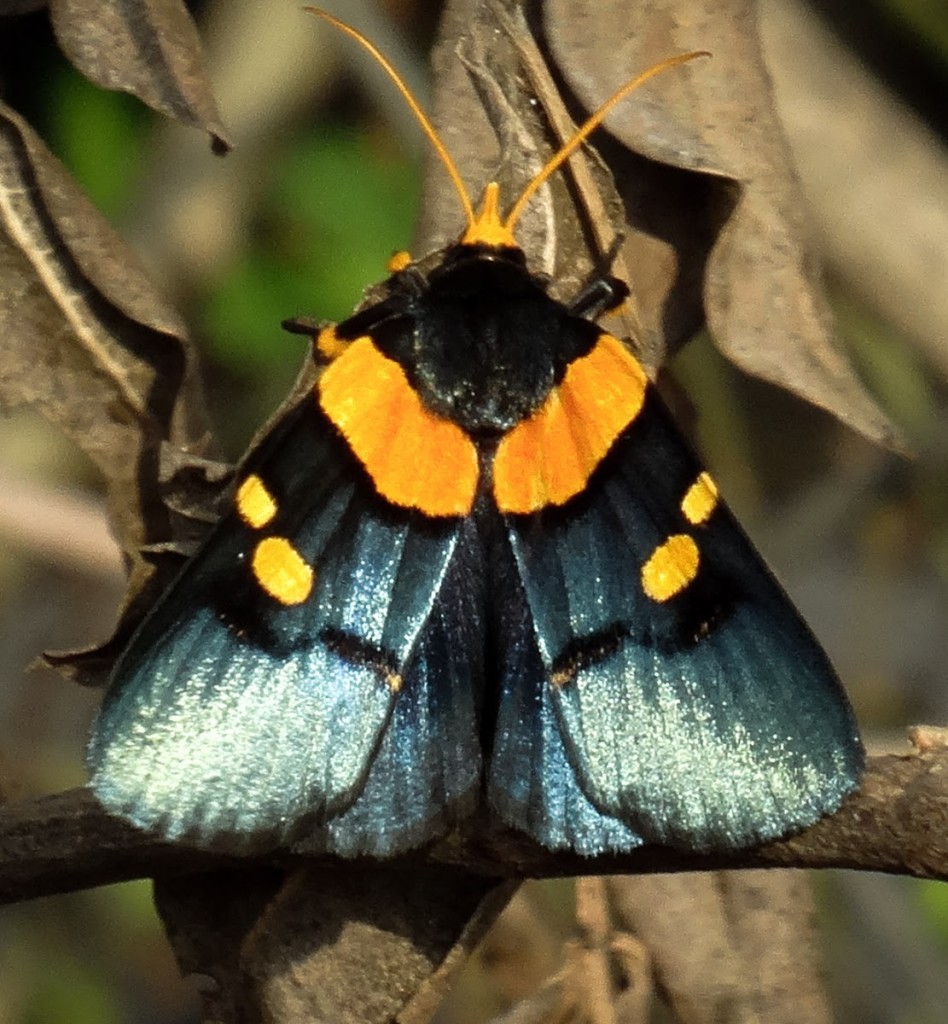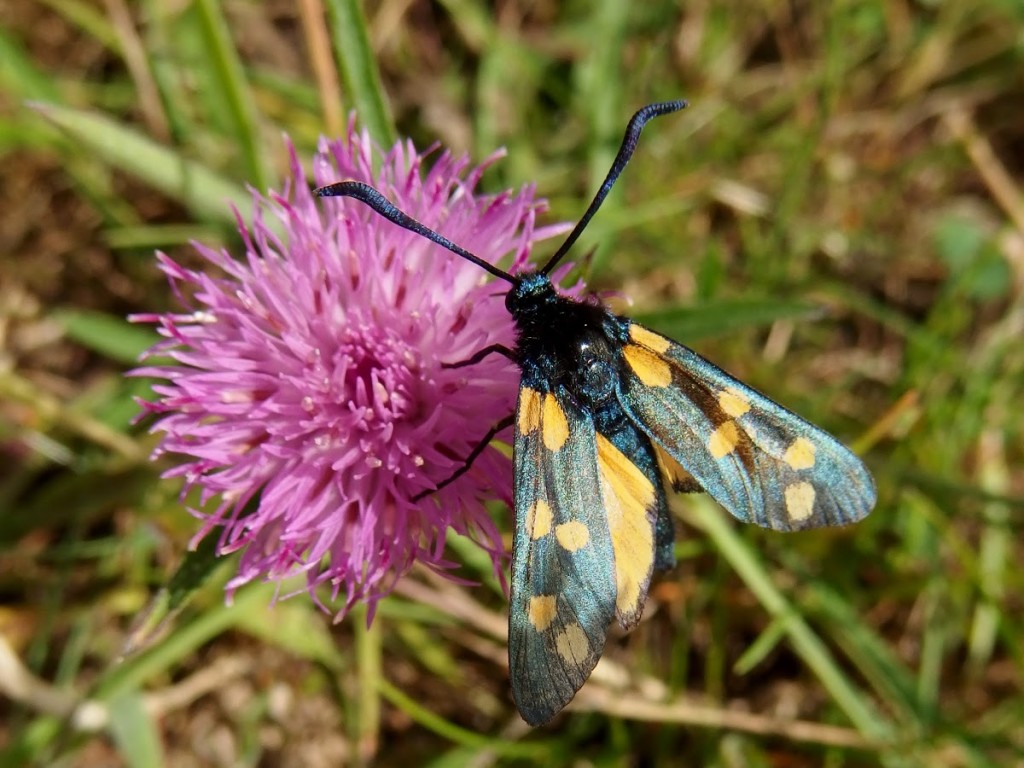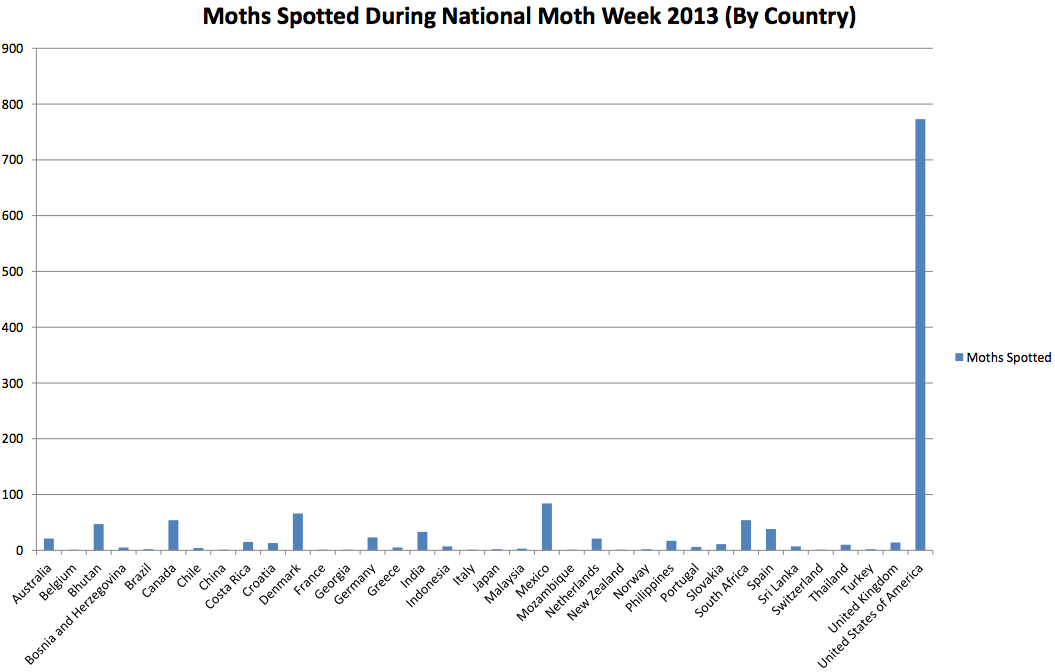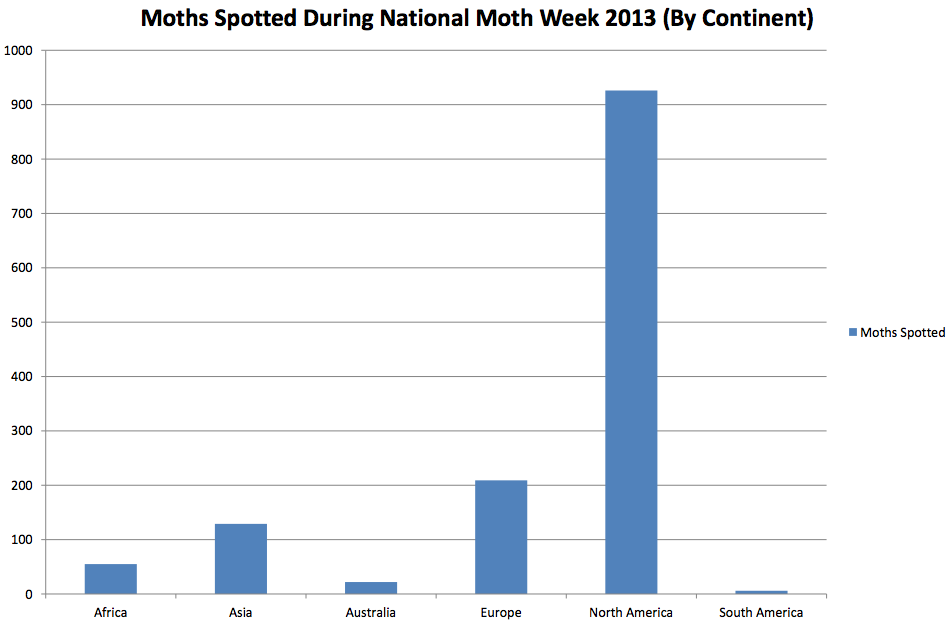Following the immense success of Project Noah’s collaboration with National Moth Week during the event’s first year, Project Noah participated in the second annual National Moth Week, which occurred from July 20, 2013 to July 28, 2013. Project Noah surpassed its goal of 1000 moths spotted during National Moth Week by 347 moth spottings!

Participants were encouraged to submit their spottings of moths to the Moths of the World mission on Project Noah, where data from their spottings would be exported. Users who submitted their spottings to the mission during National Moth Week were awarded a limited-edition National Moth Week 2013 patch which congratulated users on their contribution to citizen science:
Thanks for sharing your moths! You’ve successfully submitted a moth spotting for International Moth Week 2013! We’re working hard to collect important data and show the world how awesome moths really are and we thank you for helping us out. Now, let’s get back out there and spot some more moths!

Being the creator of the Moths of the World mission on Project Noah, I was touched to hear words like those of my friend and fellow Project Noah member Maria de B: “I really did think of butterflies as being the beauties and moths as the plain cousins. It’s great to have learned so much about the beauty of moths!” It is estimated that there are hundreds of thousands of moths species worldwide, with even more unknown to science! Citizen science organizations and events like Project Noah and National Moth Week help shine a light on underappreciated creatures like moths and emphasize their importance in the ecosystem. My Moths of the World mission aimed to inspire people to look twice at what they think might be “just another fluttery, drab moth,” finding that all have intricate patterns which can be superficially overlooked.

A total of thirty-six countries participated in National Moth Week 2013, including a number of new countries—Bosnia and Herzegovina, Chile, China, Denmark, Georgia, Greece, Italy, Mozambique, New Zealand, and Turkey! Six more countries participated this year than last!

A total of 1347 moths were spotted during National Moth Week, 867 of which were identified, and 480 of which were unidentified. North America came out on top with 926 moths spotted during the week! Of those moths, 773 were spotted in National Moth Week’s home country of the United States of America! Although it was winter in the Southern Hemisphere, there was a wonderful participation rate, with 22 moths from the continent of Australia, 55 spottings from African countries below the Equator, and 6 spottings from South America! A full breakdown of the data is available here. The following two diagrams depict continent and country totals for National Moth Week 2013:
If you did not participate in the second annual National Moth Week, have no fear! National Moth Week 2014 is just around the corner! It will be held from July 19 to July 27, 2014. International registration is available here, and registration for the United States of America is available here.


